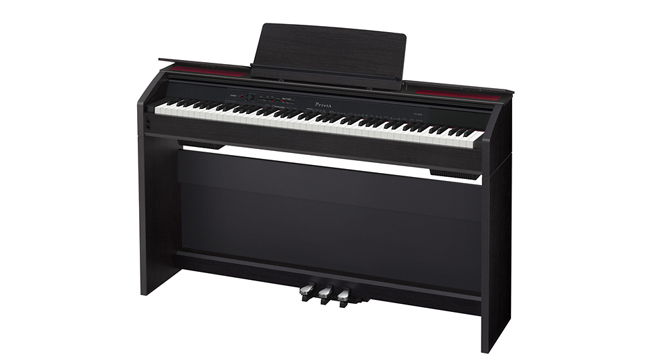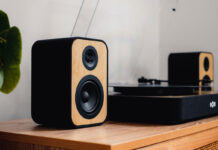
It’s been one of the unspoken goals of electronic music for decades: realistically mimic the sound of acoustic instruments. The sound of the piano has been the target of many to try and replicate “in a box”.
Technology advances over the past decades have given parents and budding pianists a convenient and viable option to learn the instrument. I’ve been amazed at how convincing digital pianos can sound and perform.
Digital Piano 101
There’s a lot of research, design and detail that goes into creating a convincing digital piano that can mimic the real thing. When digital sampling was becoming somewhat affordable a few decades ago, the quality high-water mark was (and still is) mimicking all the nuances of piano.
From a technical / mechanical standpoint, pianos are arguably some of the most complicated acoustic instruments on the planet. There are countless moving parts and components that go into a pianos’ construction. Each key can have 1-3 strings that vary in length and thickness. The timbre and volume nuances that each key can produce can seem endless. Not only do you have to pay attention to the variety of each key, but when you incorporate the use of the three pedals, the combinations and permutations of tone possibilities skyrocket!
Digital Piano versus Acoustic Piano
I grew up on a couple of acoustic pianos and went through music school to hone my playing to a fairly advanced level. I’m probably a bit biased as to whether I’d prefer digital over acoustic (spoiler alert: I’d choose a good acoustic). That being said, there are many reasons why I’d recommend a digital piano over an acoustic variety.
 Sound
Sound
I have to admit that the hybrid sampling and modeling technology that gets employed in digital pianos produces a very convincing performance. Each manufacturer seems to have their own digital “secret sauce” they employ in their instruments. For instance, Casio uses what they term as “Multi-dimensional Morphing AiR“. It’s a complex process and algorithm that results in some fantastic and convincing piano sounds.
Versatility
With a digital piano, you don’t have to settle for the same sounding instrument every time. Even on less expensive models, you can dial in piano varieties such as concert grands, studio grands, uprights, electric pianos and a whole range of non-piano instruments too. A lot of digital pianos also come with audio effects as well enabling you to hear your playing in a large concert hall or even a canyon.
 Tuning—the Lack of …
Tuning—the Lack of …
The bane of owning an acoustic piano—especially when young players advance to higher levels—is having to get the instrument tuned. Each key can have 1, 2 or 3 individual strings and needless to say, tuning a piano is nothing like tuning a guitar or violin. The cost and time it takes to tune a piano can add up. Digital pianos are always in tune and some, like the new Casio Previa line can be tuned to different scales and keys at the push of a button.
The Sound of Silence
Let’s face it, although practicing everyday is a noble goal, it can sometimes get on others nerves. Pretty well every digital piano allows you to plug in a set of headphones and play without having anyone else to hear you. You can play the piano in the same room that others are watching TV, or even at night while the kids are in bed.
Size Matters
An acoustic piano—even a studio upright—is heavy and large. They take up a lot of space in a room. A digital piano takes up a much smaller footprint and most models can be moved and transported fairly easy, without having to call professional movers and a truck.
Final Thoughts
A decade ago, I probably wouldn’t have recommended digital pianos to anyone looking to purchase one for learning the instrument. These days, given the advances in technology and relative prices, I’d say they’re something that one needs to seriously consider. They’re a great option for the modern family who want to start learning and enjoying the instrument.
Best Buy has many Casio Digital Pianos that can be ordered online and conveniently delivered to your home.



